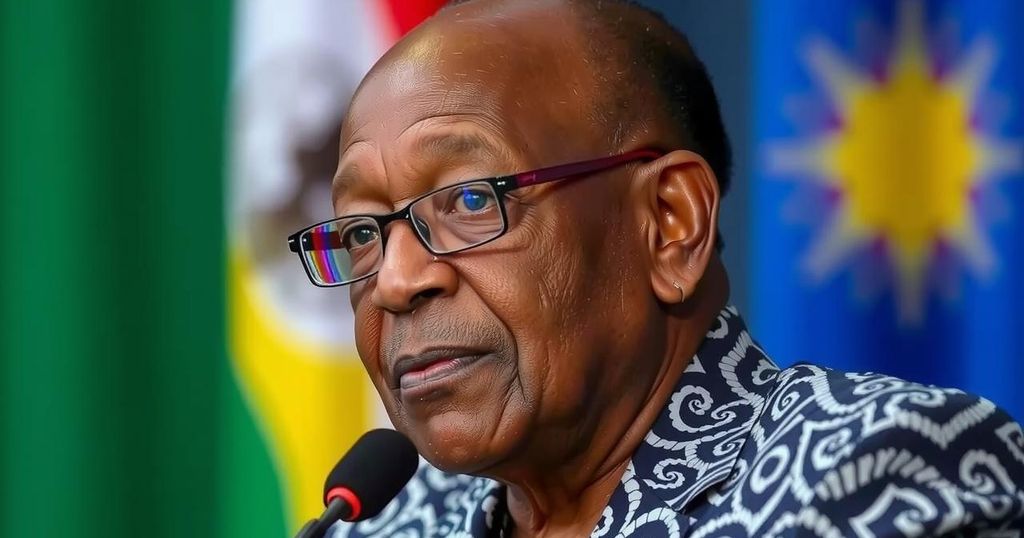Botswana President Acknowledges Election Defeat, Signaling Political Shift
Botswana President Mokgweetsi Masisi has conceded defeat in the recent elections, marking the end of the BDP’s nearly sixty-year rule. Preliminary results indicate that the opposition coalition, UDC, is set to assume leadership, with Duma Boko as a frontrunner for the presidency. The election results show the UDC winning a substantial majority of parliamentary seats amid economic challenges for the nation.
In a historic shift for Botswana, President Mokgweetsi Masisi has officially acknowledged defeat following the recent elections, which have seen his party, the Botswana Democratic Party (BDP), lose its parliamentary majority after nearly sixty years of governance. Preliminary reports from both the private media outlet Mmegi and state radio indicate that the opposition coalition, the Umbrella for Democratic Change (UDC), has emerged victorious in over half of the constituencies. The UDC, led by attorney Duma Boko, is currently poised to assume the presidency, although Boko has yet to issue any public statements regarding the election outcome. During a press conference, President Masisi expressed his intentions, stating, “Although I wanted to stay on as your president, I respect the will of the people and I congratulate the president-elect. I will step aside and I will support the new administration.” Analysts had anticipated a competitive election, yet many believed the BDP would retain its influence. As the ruling party of Botswana since its independence in 1966, the BDP has had a significant impact on the nation’s political landscape. Recent electoral data reveals that, out of 36 reported constituencies, the UDC has secured 25 seats, while the BDP has managed to obtain only one. A party needs a minimum of 31 constituencies to achieve a majority in the newly elected parliament. Botswana is recognized for its stability and prosperity, primarily attributed to its wealth in diamonds. The nation, home to approximately 2.3 million people, offers free healthcare and education to its citizens and stands as the leading global producer of diamonds by value. However, recent downturns in the diamond market have strained national revenues, prompting difficulties in economic diversification.
The recent elections in Botswana mark a significant political transformation for the country, which has been under the governance of the BDP for nearly six decades. As a region noted for political stability and economic prosperity, largely due to diamond mining, Botswana has faced challenges in recent years due to fluctuations in the diamond market. This context of economic decline and potential governance transition underscores the historical significance of the recent elections and the shifting electoral dynamics.
The recent concession by President Mokgweetsi Masisi reflects a pivotal moment in Botswana’s political landscape, marking the end of the BDP’s prolonged dominance in government. With the UDC emerging as a formidable political force, the nation is poised for significant changes. The evolving economic circumstances further emphasize the urgency for new leadership to address the challenges facing Botswana’s economy.
Original Source: www.theguardian.com




Post Comment